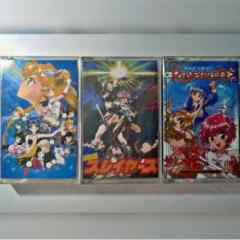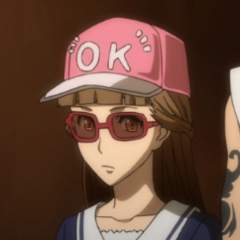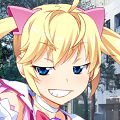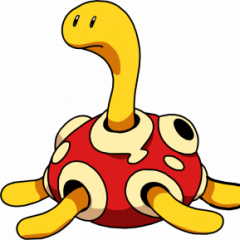Leaderboard
Popular Content
Showing content with the highest reputation on 07/09/19 in all areas
-
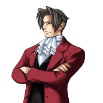
AX 2019 Schedule and Announcements
Kosakyun and 2 others reacted to Mr Poltroon for a topic
Well, announcements are announced, so let's see how they look... The order in which they appear more or less reflects my interest in them. Excited: Interested: Indifferent: Won't Play: Now, let's do a counter for each publisher to see who had the most interesting stuff for me. So yeah, this was a good round of announcements! Good thing I'm part of the casual pleb audience that actually makes these publishers some monies. If you didn't like this convention then... sucks to be you!3 points -

Dead Days
Happiness+ and one other reacted to Clephas for a blog entry
On request and because I am a Kurashiki fan, I decided to play this, despite worries about the concept and the characters... and I came out finding my worries perfectly justified. First, the protagonist Teru... in a standard chuunige, he would be the jackass that gets killed after begging for his life in the opening act after doing something totally scumbag-like. Worse, rather than being merely a cold-blooded manipulator (which is how the Getchu page presented him), he is actually an irritable kid who thinks he is a lot smarter than he is. Second, the heroines... first, the punk-like Aira who overdoes her makeup and generally speaks like an airhead but has definite anger issues. Second is Asami, another man's wife who is generally weak-spirited and only clings to her second life out of a desire not to lose what she has left (her husband and child). Third is Mao, the protagonist's osananajimi who has a strong sense of justice, is pretty naive in general, and tends to get on the protagonist's nerves constantly (this gets worse after he dies and gets resurrected). Mao is the true heroine of the game... and also the single most annoying character in the game, even setting aside the protagonist's issues with her. To be blunt, she is yet another Victim A heroine presented as the true heroine of a serious game with violence... Third, the writing... I wanted to cry at how low-quality the writing in this game is compared to Kurashiki's previous two Clock-up games. Both Okami and Maggot showed off his skills in full, and as a result, they have a cult fanbase even amongst those who don't like the sexual themes involved in the latter or the social ones in the former. The basic narrative quality is scaled down to the level of the protagonist, which is hugely disappointing. Last, though this is more of a universal complaint for all Clock-up games... too much meaningless h-scenes. I hate Clock-up's visual style for H-scenes (there aren't any torture rape scenes in this one, outside of the bad endings which I didn't watch), and the presence of loli content made me vomit... twice. Seriously, was that really necessary? The good points of this VN lie solely in the individual heroine paths, because the common route is just poorly handled and paced. The heroine paths, on the other hand, are slightly stronger, though only Mao's has a decent epilogue (even by VN standards). Overall, this game felt like a really inept attempt at psychological horror. Considering how good a job Kurashiki has done previously at this kind of thing, it startled me how huge the gap in quality was between this and his previous works... both for Light and Clock-up. Even Sora no Baroque was better, and that is saying a lot.2 points -
The Battle Rankings were what made Little Busters common route so much fun. Don't take it seriously, and just watch the waifus battle it out. Sometimes the RNG scripts some funny results. I swear, Komari is quite strong in the battle rankings at times.... The RNG can also script some dramatic baseball matches too (in one match, on the absolute final ball, Rin won the entire game with a home run).2 points
-
Stats in the minigames and the baseball game are the same. From what I understand, it's pretty much impossible to beat the baseball game on your first playthrough, but later it becomes a lot more trivial. Well, there's not really much meaning to the minigames to begin with, so just do what you want. I'd recommend not skipping them for a few times at the beginning while you're still not tired of them, and skipping them afterwards.2 points
-

Amatsutsumi
Mr Poltroon reacted to Clephas for a blog entry
... it's been a while since my feelings on a VN have been as complex as my feelings for this one are. I say 'feelings' because this VN has massive emotional impact... not as much as Hapymaher, but nonetheless a lot of emotional impact. To be blunt, Makoto is nothing like Hapymaher's protagonist, so if you were hoping for more of his 'consumed by sorrow and despair but still living my life' personality, sorry, no luck here. Makoto is... a blank slate. I don't say this in a bad way. For better or worse, Makoto has lived his life in an isolated village where people literally don't talk any more than is absolutely necessary, lest they accidentally compel one another with their power, 'kotodama'. Makoto has a fiance named Mana (and no, not that kind of lukewarm, 'distant fiance' sort of thing you see in some VNs, since they actually get down to business), and a rather nice, slow life in that village... However, he yearns for the outside world, where people can talk to people without restrictions. He escapes from the village and collapses from hunger in a small town four days later, where he is saved by the first of four heroines, Kokoro. From there the story begins, as he makes the journey from an innocent 'kami' to a real human being with all the baggage that comes along with it. A lot of the most interesting parts of this game come from the fact that he naturally doesn't understand much about the outside world. Makoto's innocent, unstained viewpoint, combined with his natural kindness and willingness to embrace new experiences, feel surprisingly refreshing. Things other 'normal' protagonists would worry over don't even occur to him, and he is so laid back he makes the drugged hippies of US in the sixties seem tense. While he does change as part of the story, his personal 'lens', through which he sees the world, remains remarkably clean throughout... not to mention the guy has absolutely no sense of sexual morality (in other words, his idea of sexual morality is 'don't use his power to compel people to have sex with him'). The first of the heroines, Kokoro, is a shojo manga addict who has fantasies about immoral relations with older brothers. She is a natural at unconsciously grasping the hearts of others around her without trying, and she is pretty much the picture of a heroine who 'exists to be loved by everyone'. The second heroine, Kyouko, is a miko that can see dead people (yes, I went there). She has huge self-esteem problems and is more than a little weird... for one thing, her reaction to Makoto is one of the more unique heroine reactions to a protagonist I've encountered over the years... for another, she is abnormally self-derogatory in both action and word. Mana... is the protagonist's fiance from the village. She is pretty much apathetic about other people, unless they have the decency to provide her with food (from her point of view, people who give her food move up from 'stone in the road' to 'slightly adorable insect' in most cases). She is a bit of an S, when it comes to Makoto, and Makoto is pretty much her reason for living. Because of a careless use of kotodama by another member of the village, she is always cold and in her eyes, it is always snowing. Hotaru... is the true heroine of this story. Cheerful and active, not to mention highly intelligent and perceptive... she is actually a fairly attractive heroine from the start. However, she has less initial impact than Mana or Kokoro, for reasons that are fairly apparent. Since that is by design, I actually am not complaining about this, though. Now, to get to the downside of this game... it uses the G-senjou 'ladder' story structure, wherein the story progresses arcs where you choose to either pursue the heroine associated with that arc to an ending or move on with the main story. I can say that the path endings for the non-true heroines were actually pretty good, but having played the true path, they are comparatively low-impact. A lot of this is the fact that the major events of their 'paths' are in the arcs they branched off from, so little is added by their endings save for more sex and some minor tying up of loose ends. To get back to the main game... the true path is the impact I was talking about. The main arcs were all emotional, so I guess you can say that the other heroines' 'paths' were also emotional, but, as I mentioned above, there is a definite sense that very little was added by choosing one of the other heroines. Hotaru's path is easily the most powerful 'arc'. In fact, it is so emotional and powerful that there are two ends for it. The first one (which you are required to watch first) is... sad, to say the least. It isn't a bad ending, but it is a sad one. I know I cried. For the second ending... well, let's just say it is a good one and leave it at that. Overall, my viewpoint on this game is... just as mixed as I said above. My conclusions on the G-Senjou story structure are unchanged in the least. I still believe that all VNs that use that story structure should be changed to kinetic novels, just so I don't have to deal with heroine endings that are neglected by the creators of the stories themselves. While all stories with true heroines inevitably put a much larger emphasis on the true heroine, the way this story structure trivializes the other heroines is really irritating, especially when they are good heroines, like these were. However, if you take the arcs, characters, and the true endings separate from that source of irritation, it is a great VN. It just happens to use the single worst VN story structure in existence. Indeed, that story structure and the inevitable realities it brings along with it are the only thing that kept me from naming this as a kamige. PS: I will erase any and all comments that spoil anything in the last arc. I say this because this is the type of VN that can only be enjoyed to the fullest once, not the type that merely changes flavor with each playthrough, like Devils Devil Concept. Anyone who spoils this VN should have their skin sliced open, drawn back, then have salt rubbed into the exposed flesh. ... *Clephas drools and goes off to make BBQ*1 point -
Yeah, battle rankings were fun - especially the titles given to losers1 point
-

What are you playing?
Seraphim reacted to Mr Poltroon for a topic
Stats influence baseball, of course. They need to run and catch balls and all that good stuff. Characters are good at different things precisely because of their stats.1 point -
If memory serves, stats were important for baseball too.1 point
-
AX 2019 Schedule and Announcements
SaintOfVoid reacted to novurdim for a topic
Their announcements are so boring (to some) because their acquisitions are boring. They could have been translating something else all this time, couldn't they? And if three of the remaining five secret projects really are Rance and co. then we only have two left for the Otakon. I suppose Rance 03 is a given and... do they have any Funbag Fantasy titles left?1 point -
This list is my gift for newbies who are looking for straight-out overpowered, god-level tier, or just generally strong protagonists. In other words, this is my list of protagonists who are great in a fight. This is a list of those protagonists and the VNs they are in. Vermilion Bind of Blood- Toshirou Kashima (the game is based in the US, so his name is first name first throughout the story) is a former samurai from just before the opening of Japan. He became a vampire and lived until modern day, and he is a master swordsman and killer of his own kind. His special ability as a vampire is the control of electro-magnetism, which can be done through touch or his blood. Electro-Arms- Kirihara Reiji is a delinquent protagonist who made a name for himself by essentially beating every other delinquent in town (he lives in Roppongi Hills in Tokyo). From a young age, he developed the ability (non-supernatural) to see how things fit together and the flaws and habits of systems and people. In any situation, he can find a way to win, and he is constantly looking for thrills. While he is technically a delinquent, he doesn't harm normal people and generally only gets in fights with those who challenge him. Zero Infinity- Akizuki Ryouga is characterized as a young man who quite naturally and without any outside influence, can reach levels of ability few others can match. As the game's antagonist puts it, he is a 'natural-born monster' who, from the very beginning, has his own philosophy in life and is capable of putting it into action without any significant degree of stress. As a fighter, he is the type that evolves so rapidly he leaves others in the dust. Devils Devel Concept- Shigure Sora is perhaps the most powerful mortal being in his world. With a combination of immense power, a naturally combative nature, and a near-infinite array of desires that are held only by the thinnest of leashes, he is perhaps the most 'out-there' non-rapegame protagonist I've encountered in a VN. Able to kill the Demons entire clans of Hunters lose to with hardly any effort, as well as possessing an inhuman degree of ability to alter reality, he is a truly unstoppable force... unless he wants to be stopped. Silverio Vendetta- Zephyr Colerain is a cowardly deserter from the army of the first country to develop soldiers capable of using Astral. However, that very cowardly nature makes him horribly deadly and an absolute realist when it comes to combat, ruthlessly using anything that comes to hand to survive and killing without mercy and often in sadistic ways to carve his path to life. His personality is fundamentally cynical, self-doubting, and negative. Outside of combat, he sponges off his adopted little sister while working dirty side jobs to bring in money. Akagoei series- Asagiri Kaito is the product of surviving in an environment that is harsh in ways that normal people would have difficulty comprehending. While he is normally an apparently selfish and random person who does what he wants at any particular moment, regardless of the eyes and expectations of others, when provoked his brutally sadistic and ruthless side can come out. He is a master martial artist and an experienced killer, but he has made a habit of showing neither side in everyday life. He is described as a 'complete independent individual' by one of the games' major side-characters. Dies Irae- Fujii Ren is your typical chuunige protagonist in personality, but where he stands out is his rapid growth as a fighter. He goes from a complete amateur to a godslayer in the course of the game, and that is the reason he is on this list. That said, I say he is 'overpowered' in a non-relative sense due to the ability to slow time (and later stop it relative to himself), which is something of a cheat ability, if you look at it objectively, lol. Though, in the Shinza universe, no ability is truly absolute. Paradise Lost- Lyle is the somewhat nihilistic anti-hero protagonist of Paradise Lost. Possessing immense powers, including the ability to corrode matter, thrive in miasma-contaminated environments, and regenerate at an incredibly rapid pace, he is a devastating opponent by any standard. Moreover, his strength of will is among the strongest of any protagonist I've seen in any VN. Evolimit- Shiranui Yoshikazu possesses the 'common' ability over fire, but what makes him stand out as an overpowered protagonist is his bravery, the ability to 'climb the ladder' of evolution for the sake of others and gain immense power. Depending on the path, he even possesses sufficient power to jump between universes or share his power over fire to every person on Mars. He is perhaps the best example I've seen in VNs of the traditional 'hero' archetype. Tokyo Babel- Tendou Setsuna is an incredibly powerful individual, even before his growth in the course of his pilgrimage through Tokyo Babel. With nanomachines that rapidly accelerate regeneration, allow him to control his own metabolism and memory, 'perfect' genes, and the ability to naturally produce non-magical lightning and fire, his basic specs are frighteningly high. His personality is grim and his emotions are somewhat dulled, his manner of speech somewhat mechanical. Nonetheless, he does possess emotions, which develop during the course of his pilgrimage. Bullet Butlers- Rick Arrowsmith is the only gunman on this list. The wielder of a cursed divine artifact, a gun that devours the souls of those he kills and can unleash immense power at the cost of part of his soul, he is also a master of close combat and gunfighting. His loyalty to his mistress causes him to cast himself into the flames again and again in her service. Ikusa Megami series- Celica Sylphil, the former servant of the God of Adventurers and Storms known as the Godslayer. His emotions are frayed from centuries possessing the body of the goddess he loved, and he is a master of the sword and storm magic. Judar Schwarka- A warrior from a lost tribe of Darkness-aligned humans in Dir Lifyna (the same world as the Ikusa Megami series). He wields a greatsword as easily as a normal warrior would wield a shortsword, and he fights with ferocity and ruthless utilization of anything that comes to hand for the sake of his own survival. (his alignment in D&D terms would be chaotic neutral, as he is a believer in strength and free will first and foremost) Kikan Bakumatsu Ibun Last Cavalier- Okita Soushi (an alternate of Okita Souji from the historic Bakumatsu era), he is a master of the sword, carving away at his own life using a power that is unnatural for men to use. As the game goes on, his sword only grows sharper and his soul steeped ever deeper in death and bloodshed. Chrono Belt- This game has two protagonists, both of whom are overpowered, as anyone who played Ayakashibito or Bullet Butlers can attest to. Their names are Kuki Youkou and Alfred Arrowsmith. Kuki is the master of martial arts that taught the protagonist of Ayakashibito, as well as a man who can fight dragons with his bare hands. Alfred Arrowsmith is a gunfighter who dwarfs his little brother Rick in skill, with a ruthlessness that Rick never possessed. Sorcery Jokers- Senri is undoubtedly disproportionately overpowered, even for a chuunige protagonist. His level-headed persona is perhaps his most attractive feature, not the least because the other protagonist is such a hotheaded idiot. Draculius- Ogishima Jun is the son of a true vampire, and he possesses the natural power over other vampires that comes with his royal blood. While he might start out undeveloped, he quickly grows in power as the story progresses. On the surface, he seems to be a somewhat light-hearted young man with a tendency toward pacifism. However, under that surface boils an intensely protective personality who can be driven to a horrible rage when those he cares about have been harmed. He is also naturally gifted as a leader, and his desire for family attracts those who also desire it. Note: This is a tentative list that I made in a hurry while half-asleep, so please feel free to suggest additions to it. The requirements I ask you to look for in a protagonist are someone who is powerful in an objective sense, becomes powerful in an objective sense, and/or becomes or is extremely powerful relative to those around them.1 point
-

What are you playing?
Plk_Lesiak reacted to Ranzo for a topic
I finished playing Cupid I really enjoyed it, interesting premise, good writing, and it was pretty dark and twisted. If I had to choose a song that encapsulated this vn it would be this one1 point -
It may be the first time I hear anyone says that. Care to elaborate ? I'm quite curious. For the VN, Danganronpa's script felt very padded (admittedly, this is an issue I have with a lot of VNs, but Danganronpa is a particularly bad offender). The main reason I take particular issue with Danganronpa's padding is that rather than having a bunch of scenes that don't matter, there are a bunch of lines that don't matter; this is most problematic during the trial segments when quite frequently multiple characters will say pretty much the same thing one right after the other (bonus points when they're all declaring that the past ~20 minutes haven't solved anything). The anime however suffers from the opposite problem where 13 episodes isn't really sufficient given how each chapter of the VN is basically a standalone story. The anime loses out on a lot of the character development and most of the build up to plot reveals as well as all of the minigames. At the end of the day, I don't feel that either medium does the story justice, but whenever I try to reread the VN I find myself getting bored quickly meanwhile whenever I watch an episode of the anime it usually gets me to smile and I often watch a few more episodes. As for the Danganronpa 3 anime, that falls into personal preference, I am completely biased towards it for multiple reasons. For starters, while it's not the first anime I ever watched, it's largely the reason I got into anime. For the future arc, the killing game is much more in line with what I'm normally into as far as diminishing cast stories (though I'm still upset that the blood is red). For the despair arc, though it had a slow start, I felt it did a good job binding all of the installments together (especially given how the first two VNs felt tangentially related at best). I could probably go into more details if I took some time to revisit them, but realistically this sums up my reasoning.1 point
-
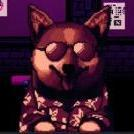
What are you listening to right now?
Plk_Lesiak reacted to alpacaman for a topic
There was a big Babymetal hype in the hipster music community when their second album came out, with it reaching No. 15 in the UK charts and even the serious magazines like Der Spiegel writing reviews.1 point -
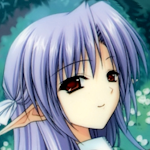
What are you playing?
adamstan reacted to ChaosRaven for a topic
Finally finished Grisaia no Meikyuu - The Labyrinth of Grisaia. It's quite a while since I read the first one, but since Meikyuu mainly was about Yuuji's back story, it wasn't really a big issue that I couldn't remember anything anymore. I did start directly with Yuuji's back story and not with the after stories of the heroines. I'm not exactly a big Grisaia fanboy and the Angelic Howl side story part was the only thing I really liked about it. Yuuji didn't play a role in Angelic Howl and in the common route he was mostly presented as some kind of idiot agent for the lulz. So I was a bit hesitant of what to expect. Fortunately, I didn't get disappointed. The writer took Yuuji's back story for the most part equally serious as Angelic Howl. The first part in particular was outright gloomy. Domestic violence, abuse, rape, suicide - it was quite dark, but also very well written. Although most people seem to appreciate Fujisaki Ryuuta mainly for his slice of life comedy, I think he's a much better story writer. I think I was able to symphatize with Yuuji for the first time here - he showed so much more emotions than the soulless shell in Kajitsu. It was also nice to see some real action for a change. While Yuuji's back story was overall still pretty good, there was unfortunately one thing that was just bad. The writer might be decent in comedy and good with story but he's outright awful if it comes to romance and H-scenes. I wish I would have played the all ages version to get spared of that crap. I also played three of the after stories: Amane's, Yumiko's and Sachi's. Though I dropped Amane's after story pretty soon when Amane reflected on how she gets horny when Yuuji treats her like shit - thanks I'll pass on that one. Fortunately, Yumiko's was much better. I think she's the only heroine that really has a good chemistry with Yuuji. Their relationship feels so honest and I just love her super cute facial expressions. Sachi's was somewhere in the middle. She's certainly one of a kind with her maid antics, but she also feels a bit too much like an artificial comedy character. Overall rating: 7/10 (Could have gotten a 7.5/10 if they would have spared me the H quota in Yuuji's back story)1 point


